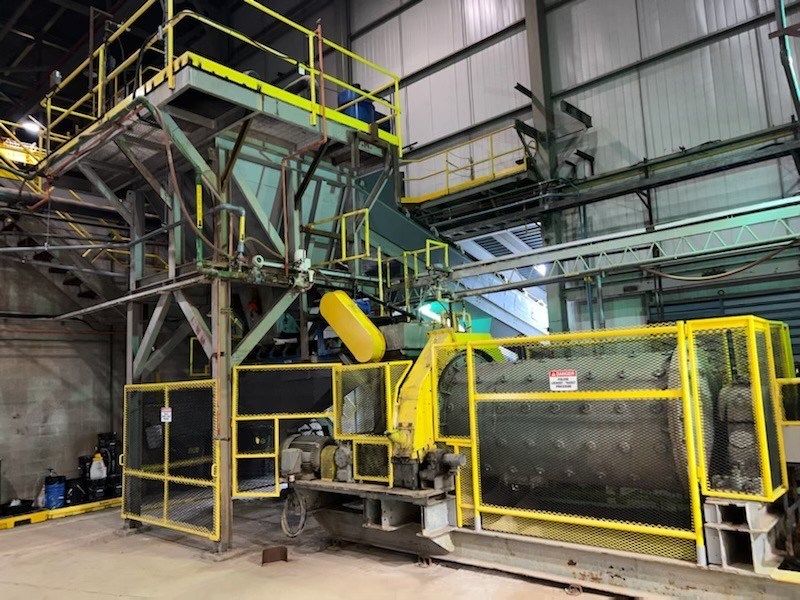
Electra kicks off battery materials recycling demo at Ont. refinery
by CM Staff
Under the parameters of the black mass demonstration, Electra plans to process up to 75 tonnes of material in a batch mode.

Electra has installed material feed handling equipment in advance of black mass recycling at its refinery (CNW Group/Electra Battery Materials Corporation)
TORONTO — Electra Battery Materials Corporation has initiated the commissioning of its black mass recycling demonstration plant at its battery materials park located north of Toronto.
This follows the installation of material feed handling and lime delivery systems, two key circuits in Electra’s hydrometallurgical process designed to recycle end of life lithium-ion battery materials.
“Automakers are looking for a closed-loop supply chain for their batteries and Electra’s recycling process presents a compelling solution to move to a circular model for recycling end-of-life batteries and battery manufacturing scrap,” said Trent Mell, CEO of Electra Battery Materials, in a statement.
Mell added that this latest development in the company’s sulfate production activities will allow it to generate incremental cash flow while strengthening relationships with various stakeholders in the North American EV supply chain.
Electra is retrofitting its existing cobalt sulfate refinery in Temiskaming Shores, Ont., to accommodate its proprietary hydrometallurgical process designed to treat black mass.
Under the parameters of the black mass demonstration, Electra plans to process up to 75 tonnes of material in a batch mode. The company also anticipates the recovery of high value elements found in lithium-ion batteries, including nickel, cobalt, lithium, manganese, copper, and graphite.
In preparation for the black mass demonstration plant, Electra completed process development and engineering on recycling black mass material. The company previously sourced black mass samples from suppliers in North America, Europe, and Asia, studied the feed characteristics, and developed a hydrometallurgical process route to recover contained lithium, nickel, cobalt, copper and graphite.